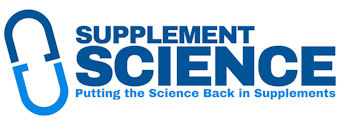If you are a bodybuilder looking to improve the performance and effects of your workouts (Or just a regular guy trying to maximize your results), then you’ve probably thought about using supplements to maximize your workouts before. One such popular supplement is creatine, which does wonders to help improve your performance. It is a great source of energy so you can perform better in your workouts, it helps you to recover faster after your workout is done, and it goes a long way to ensuring your body’s natural stores of creatine are not overly depleted by your high-intensity workouts.
Using creatine on a daily basis is an excellent and effective tool for getting the best results from your regular workout routine. Like many great supplements, however, it is subject to much scrutiny and myths surrounding the potential effects it can have on the body by taking it for long periods of time. We’re here to help you sort out fact from fiction.
Dangers of Creatine
There are all sorts of myths floating around out there about the potential dangers of creatine, but fortunately, most of them are not true.
Dehydration? One such myth is that creatine causes dehydration and cramping in its users, which would certainly be a significant cause for concern, as it is important for people to keep hydrated at all times, especially during a regular workout. Fortunately, this is another claim that has no evidence to support it, and is simply a myth that continuously gets spread around with no scientific backing.
Compartment syndrome? A condition that occurs when there is excessive pressure present in the muscle compartment, is another rumored danger of using creatine on a regular basis. Like the many other myths surrounding this helpful supplement, there is no reason to be concerned that creatine use can lead to compartment syndrome.
The stories surrounding the dangers of creatine that are true, or that contain a hint of truth, are much less worrisome. For example, the tale that creatine causes weight gain does contain a grain of fact; users sometimes gain between .8 and 2.9 percent body weight in the first few days of using the substance if they choose to have a loading phase—and this is all simply water weight.
Creatine Side Effects
Like the dangers of creatine, there is much buzz about creation side effects that have no scientific backing to support them at all. Some of the side effects that are most likely talked about are the aforementioned effects on kidneys, an organ on which no study has revealed any negative effects—save for in the case of preexisting conditions.
Creatine Effects on Sperm
It has been said that use of the supplement has a negative effect on sperm; however, no study has uncovered anything about creatine effects on sperm being negative. The concerns primarily centered on the question of whether the supplement could make a man infertile, but fortunately, it cannot. Creatine has no effect on sperm whatsoever—and sperm already naturally contains creatine.
Creatine Effects on Kidneys
Another popular myth claims that creatine can cause kidney stones or liver failure. However, the fact is that there have been many long-term studies performed regarding the use of creatine, and none of them have revealed any evidence that the supplement is harmful in such a way.
Creatine Effects on Hair Loss
Finally, there has been a lot of talk about whether or not creatine side effects include hair loss. If you’re worried that creatine might have a negative effect on your hair growth, then you probably don’t need to be! Men with male pattern baldness may experience an increased rate of hair loss (No study has really been conclusive either way), but in most cases, the use of creatine to enhance your workout results should have no effect on your hair growth whatsoever.
The Bottom Line
Creatine is a supplement that can do your body wonders during a workout—both for the recovery time you experience and the results you will see. However, like all supplements, it is understandable the object of much scrutiny and a lot of myths and rumors crop up surrounding its safety and validity. However, most of the negative claims made about creatine have no scientific backing. In fact, you have every reason to believe and trust that creatine is safe to use—and that it works, too!
Take a look at our top 5 recommended creatine supplements.




